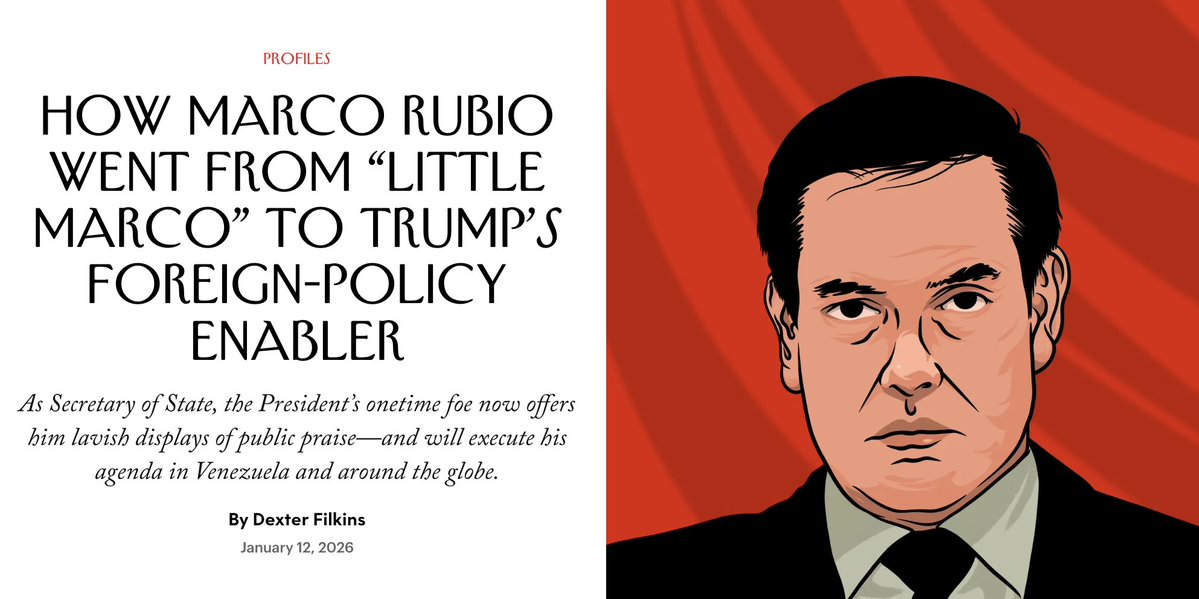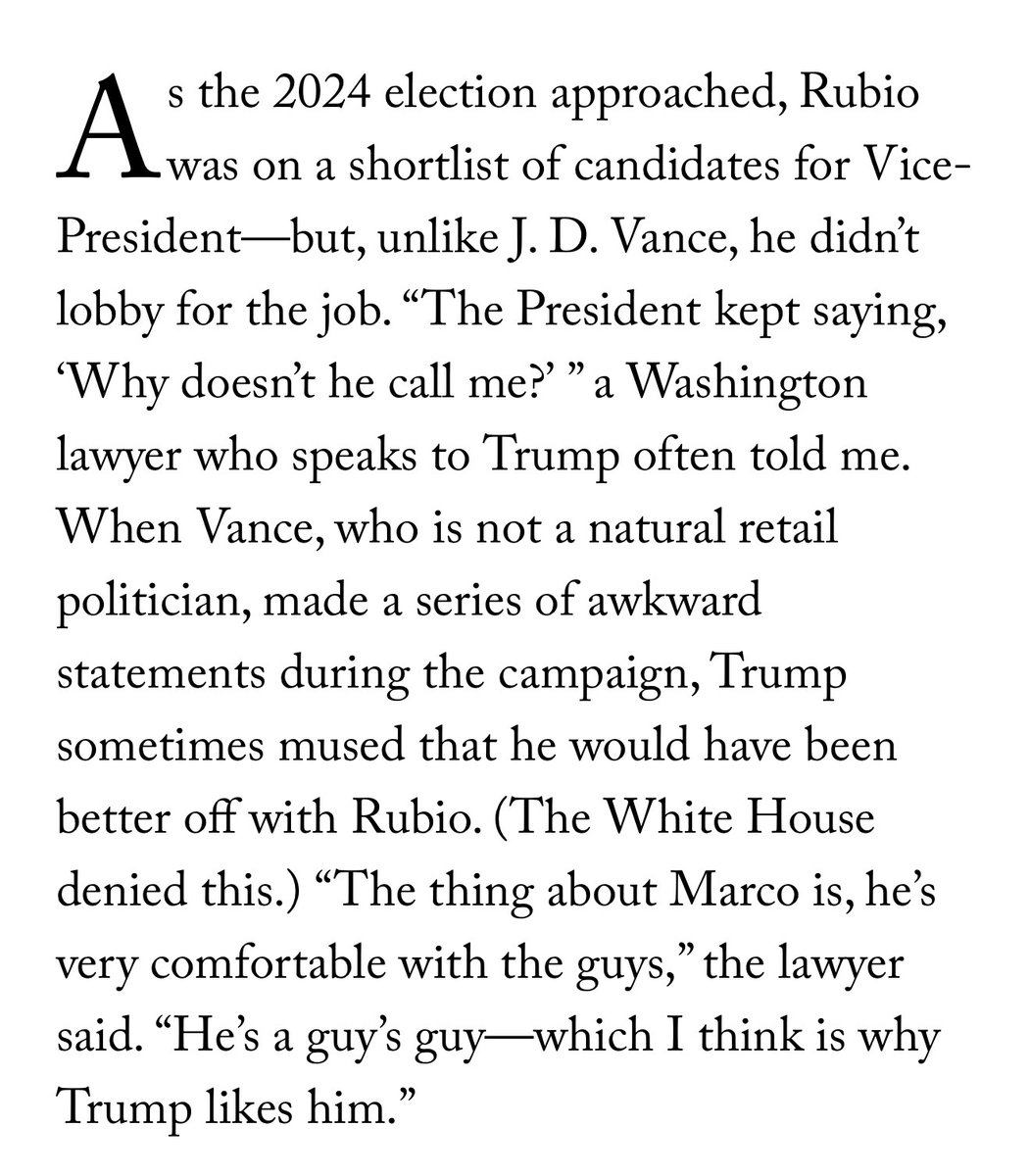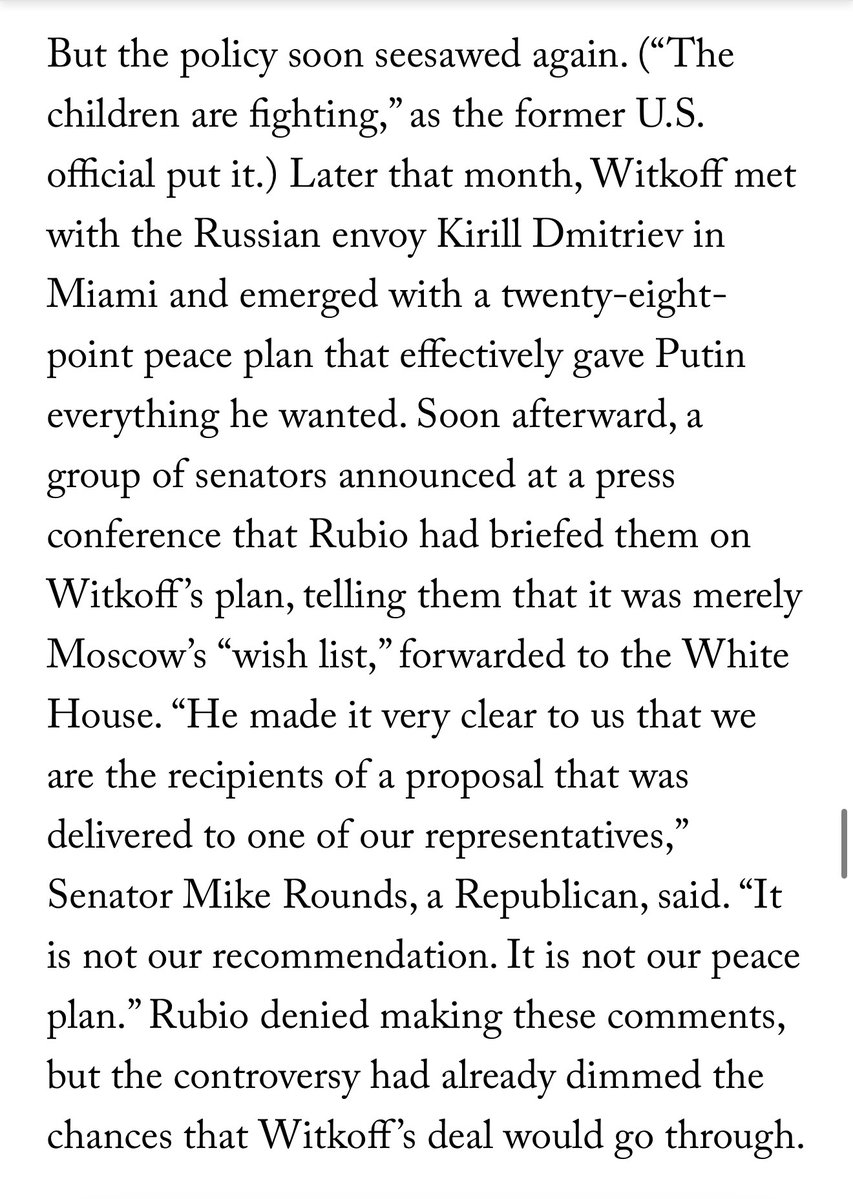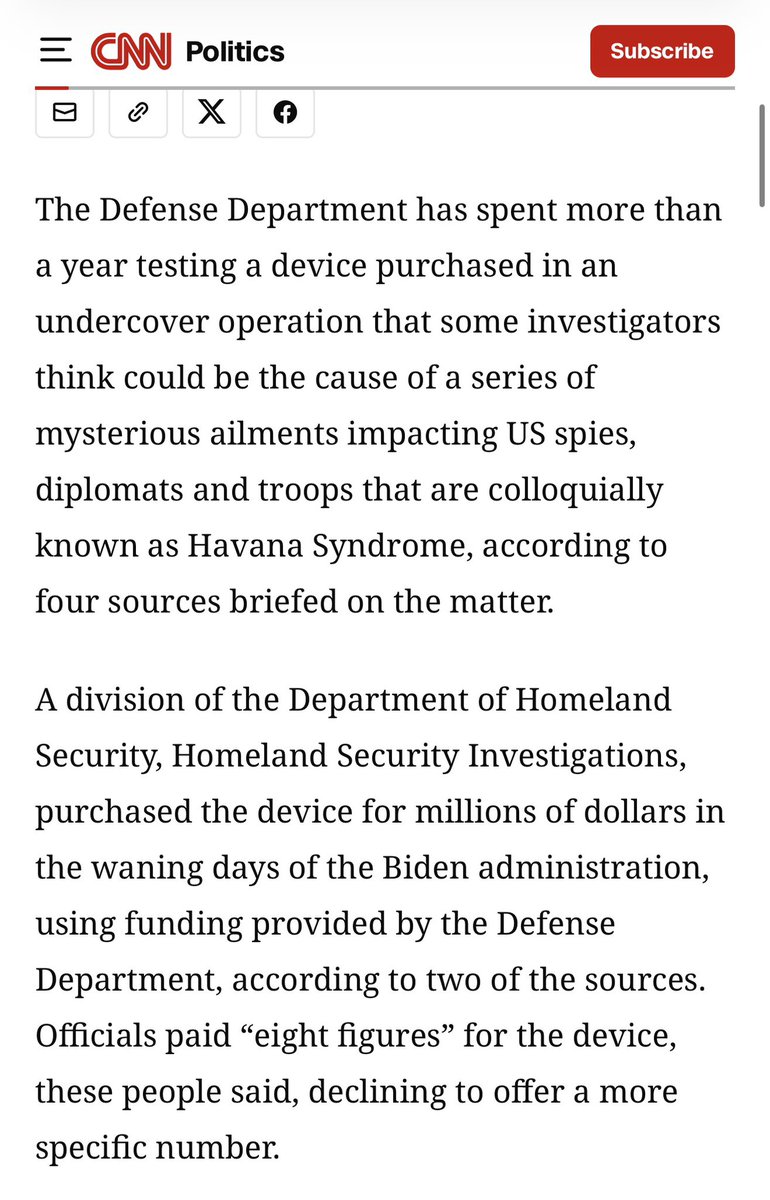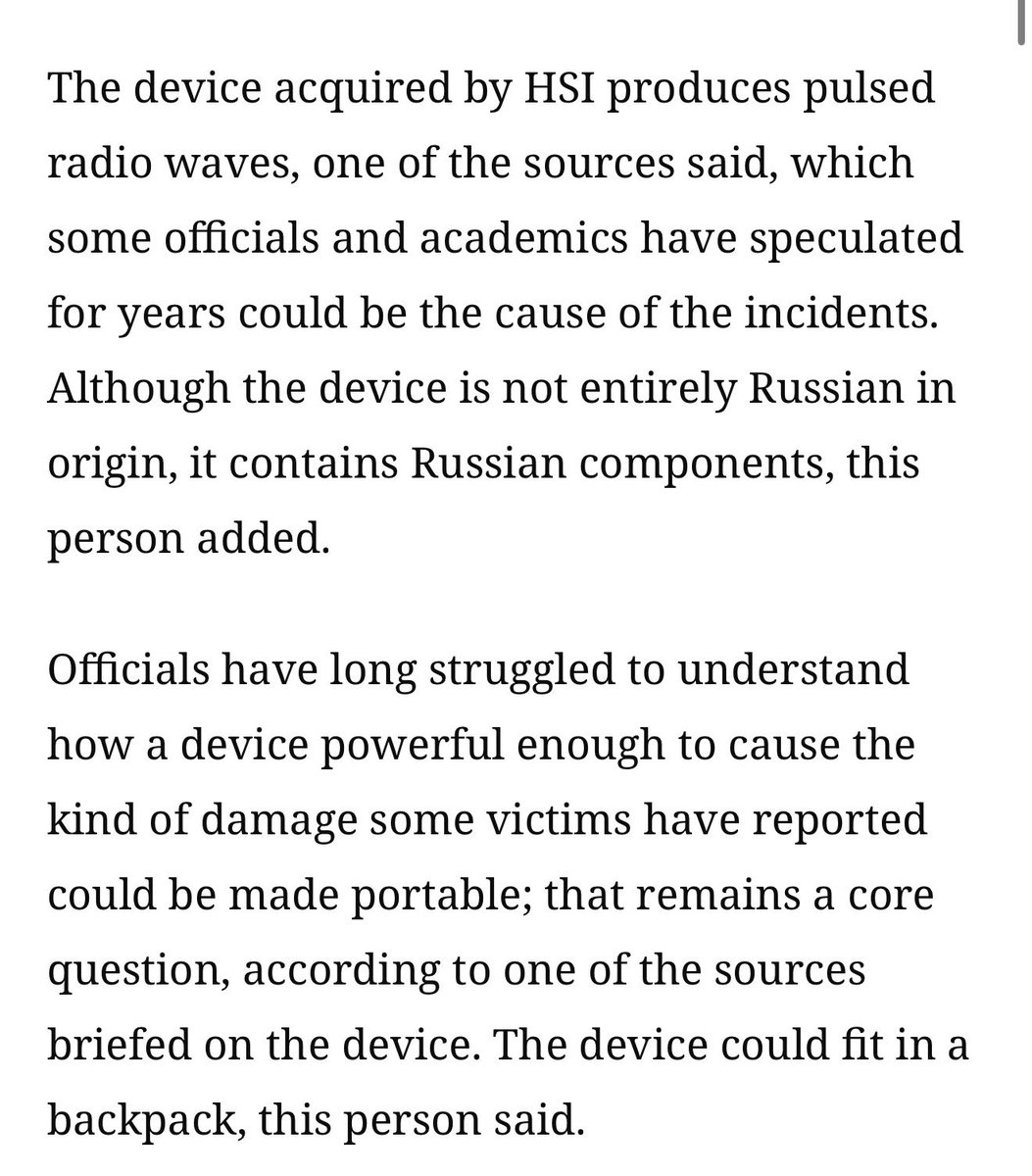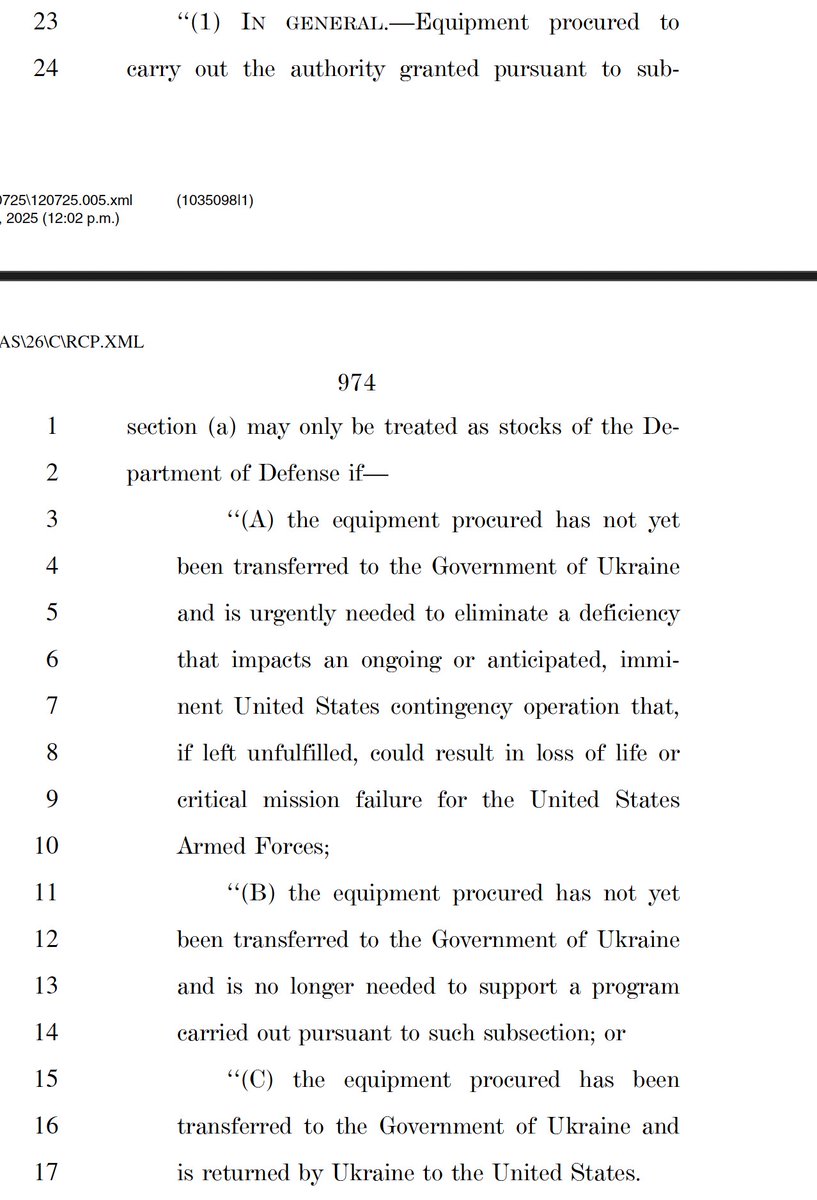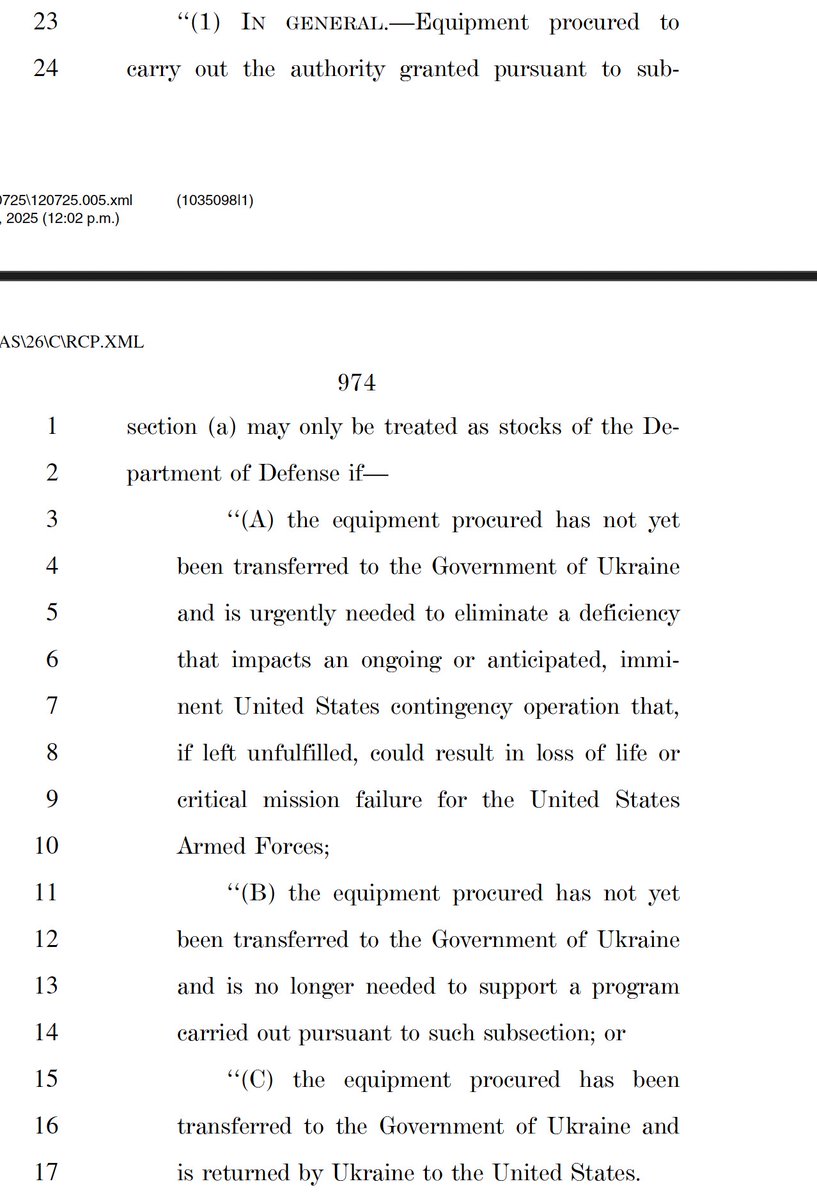Best thing you'll read all weekend, on CIA-HUR cooperation. I'll highlight the key bits below: nytimes.com/2024/02/25/wor…
CIA "put in the plumbing" for a massive partnership with HUR, Ukrainian military intelligence, around 2015, after Poroshenko's election and the appoint of Gen. Valeriy Kondratyuk, formerly the head of CI at SBU, as HUR chief. 

Though the tradecraft had to be acquired, as the Ukrainian services were still at a nascent stage of conducting foreign operations. This is great (and hilarious) anecdote about Operation Goldfish: 
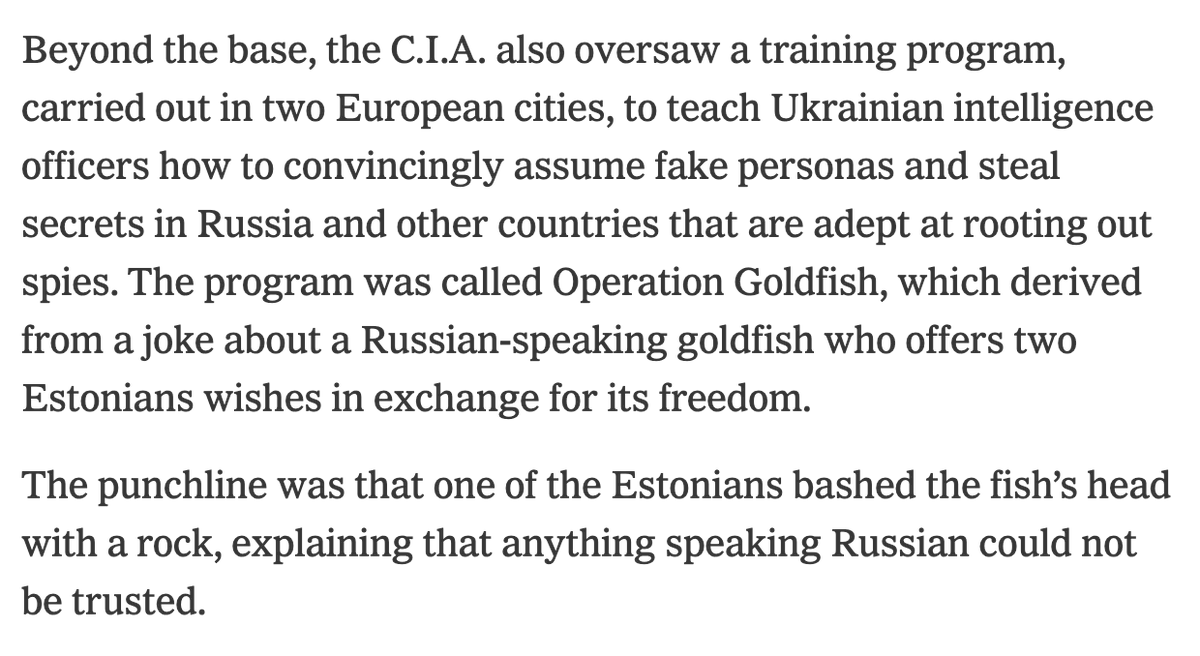
One constant throughout this war -- and remember, it's a war that began a decade ago -- is that Ukrainians are quick studies. A full relationship solidified in six months because HUR was a treasure trove of actionable intel on Russia. 

People have marveled at HUR's capability to penetrate deep inside of Russia. But the capability was always there. What wasn't, until recently, was Washington's enthusiasm for such operations. I've heard Kondratyuk tell this story before -- and how Brennan apologized later. 
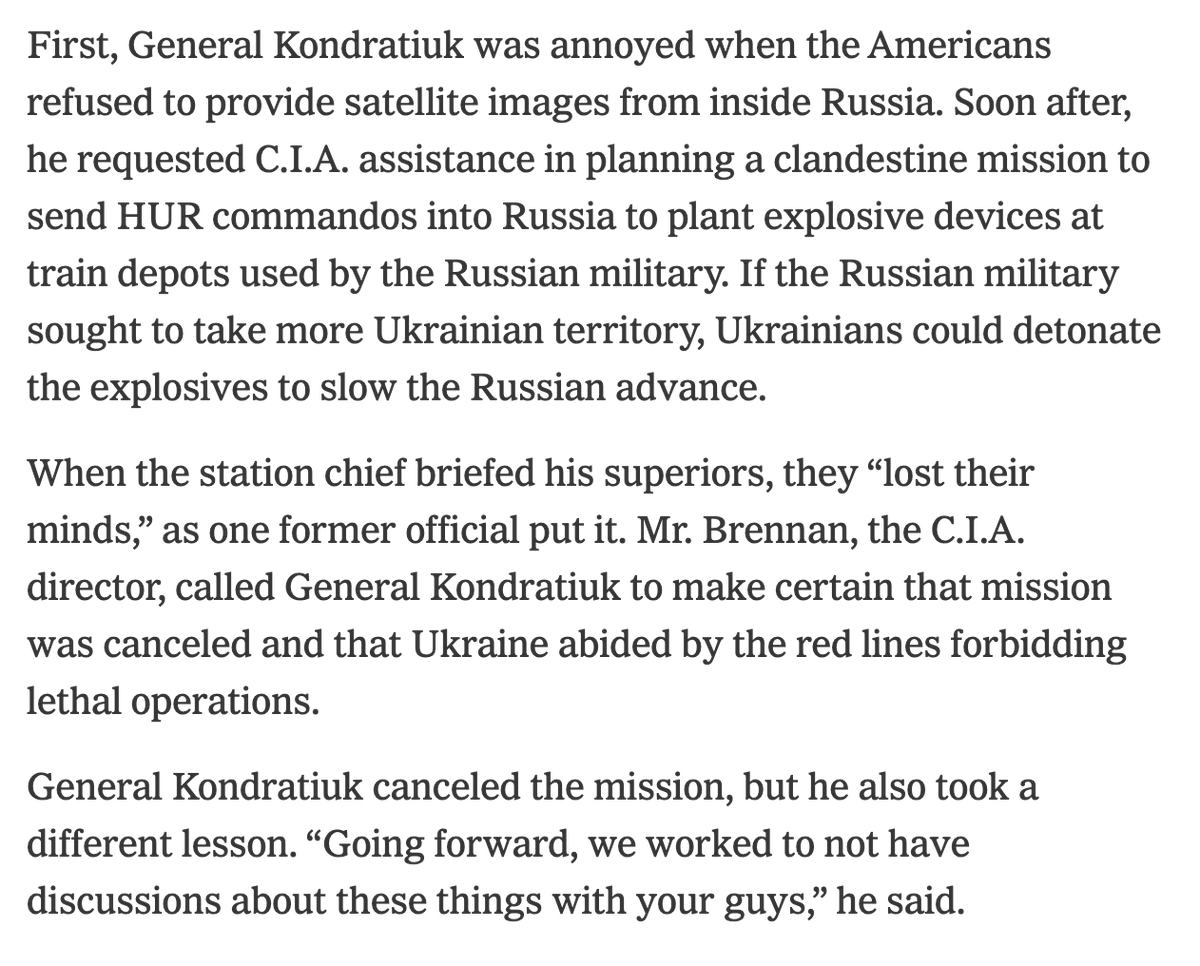
CIA says "no," so you do it and don't tell them beforehand. Guess who took part in this mission into occupied Crimea? It went sideways, but the Unit 2245 team made it out alive; one operative even killed the son of an FSB Vympel general. The operative's name: Kyrylo Budanov. 
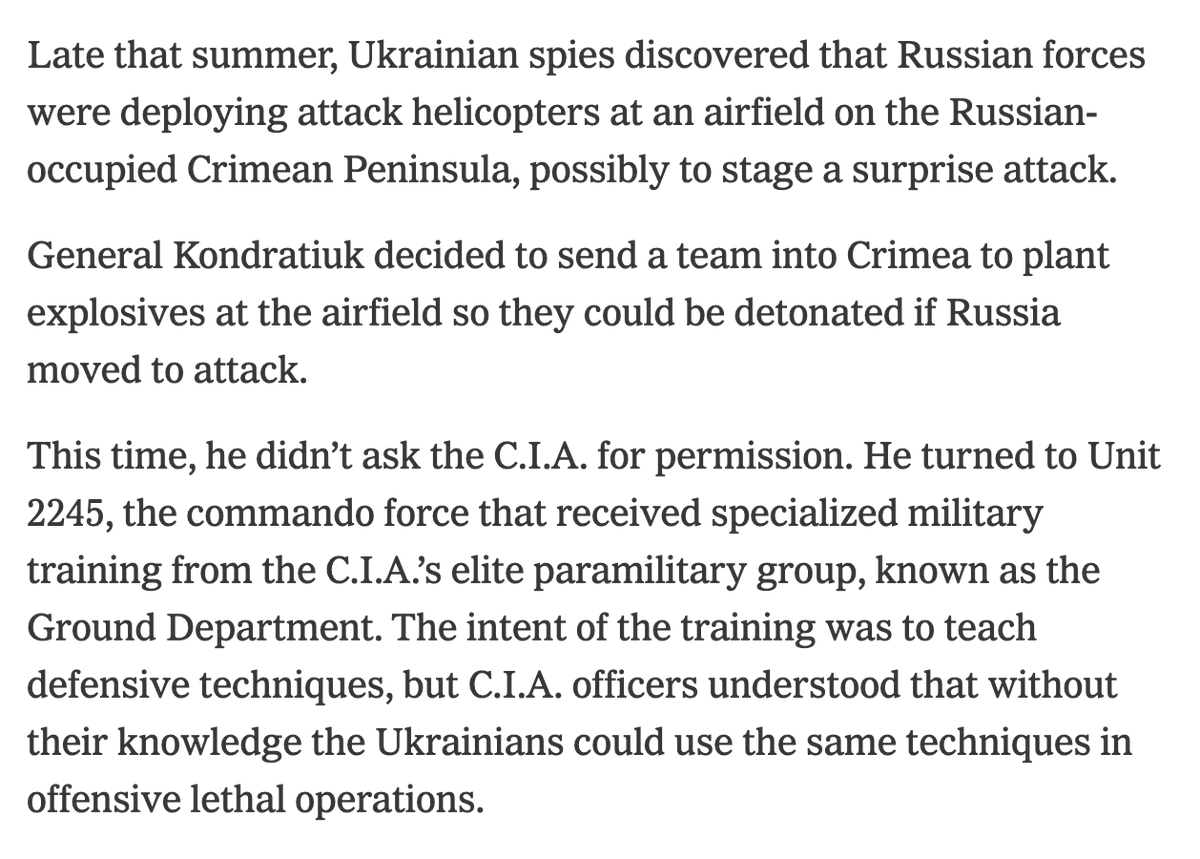
The op cost Kondratyuk his job as head of HUR. But it elevated Budanov's career. And HUR didn't slow down. Here we have attribution that they killed "Motorola" and "Givi," two pro-Russian heavies from the 2014/2015 era in Donbas. 
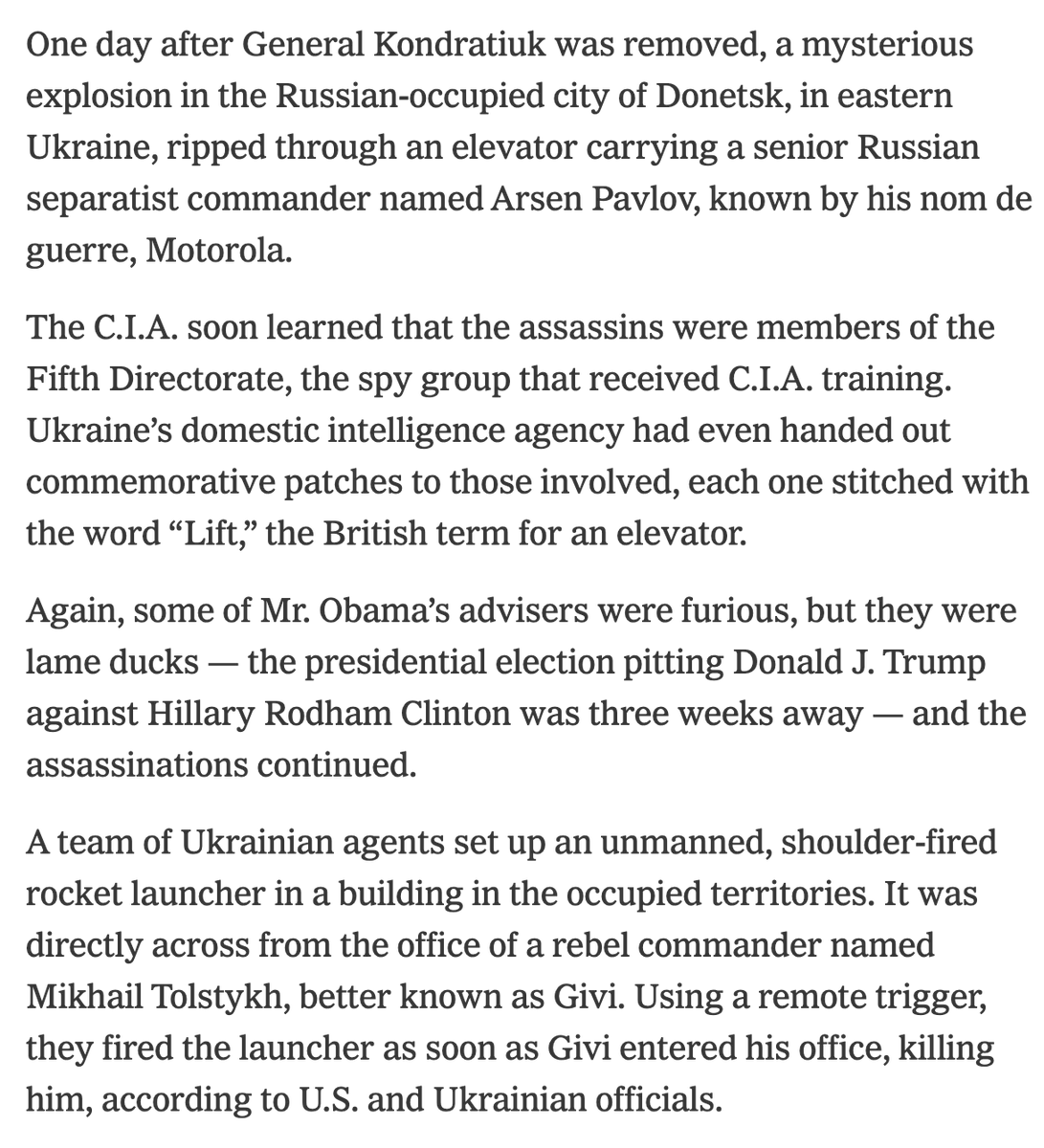
More hiccups with the Obama White House, but never mind. Joint CIA-HUR ops continued. They even led to this beaut, in which HUR tricked a GRU officer into giving up intel about Fancy Bear, the GRU hacking unit that leaked DNC, DCCC and Podesta emails to WikiLeaks. 

• • •
Missing some Tweet in this thread? You can try to
force a refresh







